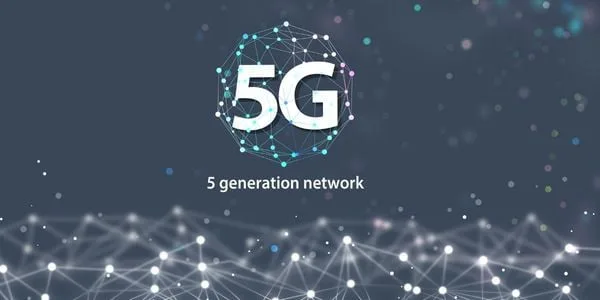The Power of AI: Everyday Applications You Didn’t Know About
Artificial Intelligence, or AI, has become an integral part of our lives, quietly transforming various industries and enhancing everyday experiences in ways we might not even realize. From the convenience of voice assistants to the accuracy of recommendation systems, AI has made its mark on our daily routines. In this article, we will explore the remarkable and often inconspicuous ways AI is being utilized in our lives, unveiling the incredible power of this technology that surrounds us.
AI in Voice Assistants
Your Virtual Personal Assistant
Remember when having a conversation with your computer was something straight out of science fiction? Thanks to AI, it’s now an everyday occurrence. Voice assistants like Siri, Alexa, and Google Assistant have become an integral part of our lives. They help us set reminders, answer questions, control smart devices in our homes, and even entertain us with jokes or stories.
These voice-activated AI systems are powered by advanced natural language processing (NLP) algorithms. They can understand and interpret human speech, making it possible to have conversations with our devices. What’s even more impressive is that they continuously learn and improve their understanding based on user interactions.
Whether it’s setting a timer while cooking, checking the weather, or even ordering a pizza, voice assistants have made our lives more convenient and efficient.
AI in Healthcare
Transforming Diagnosis and Treatment
AI is revolutionizing the healthcare industry, making diagnosis and treatment more accurate and efficient. One of the remarkable applications is in medical imaging. AI-powered systems can analyze X-rays, MRIs, and CT scans to detect anomalies and assist radiologists in making faster and more precise diagnoses.
Additionally, AI-driven predictive analytics can help hospitals anticipate patient needs and allocate resources more effectively. This ensures that critical cases are prioritized and patients receive timely care.
Furthermore, AI is being used to develop personalized treatment plans. By analyzing a patient’s medical history and genetic data, AI can recommend treatment options tailored to individual needs, improving the chances of successful outcomes.
AI in E-commerce
Personalized Shopping Experience
Have you ever noticed how online stores seem to know exactly what you want? That’s the magic of AI at work. E-commerce platforms use AI-driven recommendation systems to analyze your browsing and purchase history to suggest products you might be interested in. This not only improves the shopping experience but also increases sales for businesses.
Chatbots are another AI application in e-commerce. They provide instant customer support and can assist with everything from product recommendations to tracking orders. They’re available 24/7, ensuring that customers receive assistance whenever they need it.
AI is also behind fraud detection systems that help protect both consumers and businesses. By analyzing transaction patterns, AI can identify potentially fraudulent activities and alert the relevant parties, preventing financial losses.
AI in Finance
Smart Financial Management
Managing finances can be daunting, but AI is simplifying the process. AI-powered financial apps and services can track your spending, create budgets, and provide investment advice. They can analyze market trends and recommend the best investment options, helping you make informed financial decisions.
Furthermore, AI-driven algorithms are used in stock trading. These algorithms can process vast amounts of data in milliseconds to make split-second trading decisions, optimizing returns for investors.
In the realm of banking, AI is used for customer service and fraud detection. Chatbots provide quick responses to customer inquiries, while AI algorithms analyze transaction data to detect unusual activities, preventing unauthorized access to accounts.
AI in Transportation
Safer and More Efficient Travel
The transportation industry has seen significant improvements thanks to AI. One of the most noticeable changes is in autonomous vehicles. AI-powered self-driving cars are equipped with sensors and cameras that constantly monitor their surroundings, making them safer and more efficient than traditional vehicles. They can reduce accidents caused by human error and potentially ease traffic congestion.
In addition to self-driving cars, AI is also used in public transportation systems. Smart traffic management systems can adjust traffic signals in real-time to optimize the flow of vehicles, reducing commute times and fuel consumption.
AI also plays a crucial role in logistics and supply chain management. It helps companies optimize routes, predict maintenance needs for vehicles, and track shipments in real-time, ensuring goods reach their destinations efficiently.
AI in Entertainment
Tailored Content and Gaming
The entertainment industry has embraced AI to provide tailored content to users. Streaming platforms like Netflix and Spotify use AI algorithms to analyze your viewing and listening habits and suggest movies, shows, or songs that match your preferences. This keeps you engaged and coming back for more.
AI is also making its mark in the gaming industry. Game developers use AI to create intelligent non-player characters (NPCs) that can adapt to your playing style, providing a more challenging and immersive gaming experience. AI is also used to enhance graphics and create realistic virtual worlds.
In the world of music, AI-generated compositions are becoming increasingly common. AI algorithms can analyze the style of a particular composer and create music in a similar vein, expanding creative possibilities.
AI in Agriculture
Precision Farming
Agriculture is one of the oldest industries, yet it’s benefiting from cutting-edge technology, thanks to AI. Precision farming, enabled by AI, involves using sensors, drones, and data analysis to optimize crop yields while minimizing resource use.
AI can analyze data from soil samples, weather conditions, and historical crop yields to provide farmers with recommendations on planting times, irrigation, and fertilization. This not only increases productivity but also reduces the environmental impact of agriculture.
Furthermore, AI-powered robots are used for tasks such as planting and harvesting crops. These robots can work tirelessly, increasing efficiency and reducing labor costs.
AI in Education
Personalized Learning
Education has also witnessed a transformation through AI. Personalized learning platforms use AI algorithms to adapt to the learning pace and style of individual students. This ensures that each student receives a customized education experience, improving retention and comprehension.
AI is also used for grading assignments and providing instant feedback. It can analyze essays, quizzes, and exams, reducing the workload on educators and ensuring consistency in grading.
Additionally, AI-driven chatbots provide 24/7 support to students, answering questions and assisting with course materials. They can also track student engagement and alert educators to potential issues, allowing for timely interventions.
AI in Language Translation
Breaking Down Language Barriers
AI-powered language translation services have made the world a smaller place. Whether you’re traveling, communicating with international colleagues, or simply exploring foreign content, AI translation tools like Google Translate have become indispensable.
These tools use machine learning to continually improve their translation accuracy. They can handle a wide range of languages and even translate spoken language in real-time using smartphone apps. This makes cross-cultural communication more accessible and efficient.
AI in Environmental Conservation
Protecting Our Planet
AI is playing a crucial role in environmental conservation efforts. Conservationists use AI to analyze camera trap images and satellite data to monitor wildlife populations and detect poaching activities. This data allows for better protection of endangered species.
Furthermore, AI is used to optimize energy consumption in buildings and industrial processes. Smart energy management systems can adjust lighting, heating, and cooling based on occupancy and weather conditions, reducing energy waste and greenhouse gas emissions.
AI in Legal Services
Enhancing Legal Research
AI has made legal research more efficient. Legal professionals can use AI-powered tools to search through vast databases of case law and legal documents to find relevant information quickly. This not only saves time but also helps ensure that no important details are overlooked.
AI is also used in contract analysis. It can review contracts, highlight important clauses, and flag potential issues or discrepancies, reducing the risk of legal disputes.
AI in Retail
Inventory Management and Customer Experience
Retailers harness the power of AI to streamline their operations and enhance the shopping experience. AI-driven inventory management systems can predict demand, helping stores avoid overstocking or understocking products.
In physical stores, AI is used to track customer movements and preferences. This information helps retailers arrange products strategically and improve store layouts, ultimately increasing sales.
Additionally, chatbots and virtual shopping assistants are employed to provide personalized recommendations and assist customers both online and in physical stores. These AI-driven solutions enhance the overall shopping experience.
AI in Sports
Performance Analysis and Fan Engagement
AI is making a significant impact in the world of sports. Athletes and teams use AI-powered performance analysis tools to track and optimize their training routines. Wearable devices equipped with AI can monitor vital signs and provide real-time feedback, helping athletes reach their peak performance.
For fans, AI enhances the viewing experience. AI algorithms can provide in-depth statistics, instant replays, and even predict game outcomes. This not only keeps fans engaged but also provides valuable insights for coaches and teams.
Conclusion
Artificial Intelligence has quietly infiltrated every aspect of our lives, making them more convenient, efficient, and enjoyable. From voice assistants that anticipate our needs to healthcare systems that save lives through faster diagnoses, AI has become an indispensable part of our modern world. It’s essential to recognize and appreciate the incredible power of AI, as it continues to evolve and shape the future in ways we can only begin to imagine.
FAQs
1. How does AI improve healthcare?
AI improves healthcare by assisting in diagnosis, analyzing medical images, predicting patient needs, and developing personalized treatment plans. It enhances the efficiency and accuracy of medical practices, ultimately saving lives and improving patient outcomes.
2. What are the benefits of AI in education?
AI in education provides personalized learning experiences, automates grading, offers 24/7 support through chatbots, and tracks student engagement. These benefits lead to improved student performance and a more efficient education system.
3. How is AI used in the entertainment industry?
AI is used in the entertainment industry to recommend content based on user preferences, create intelligent NPCs in games, enhance graphics, and generate music compositions. It aims to provide tailored and engaging experiences for users.
4. How does AI benefit the environment?
AI benefits the environment by monitoring wildlife, detecting poaching activities, optimizing energy consumption in buildings, and reducing greenhouse gas emissions. It plays a significant role in conservation and sustainability efforts.
5. How does AI enhance legal services?
AI enhances legal services by expediting legal research, contract analysis, and document review. It improves the efficiency of legal professionals and reduces the risk of errors and legal disputes.







